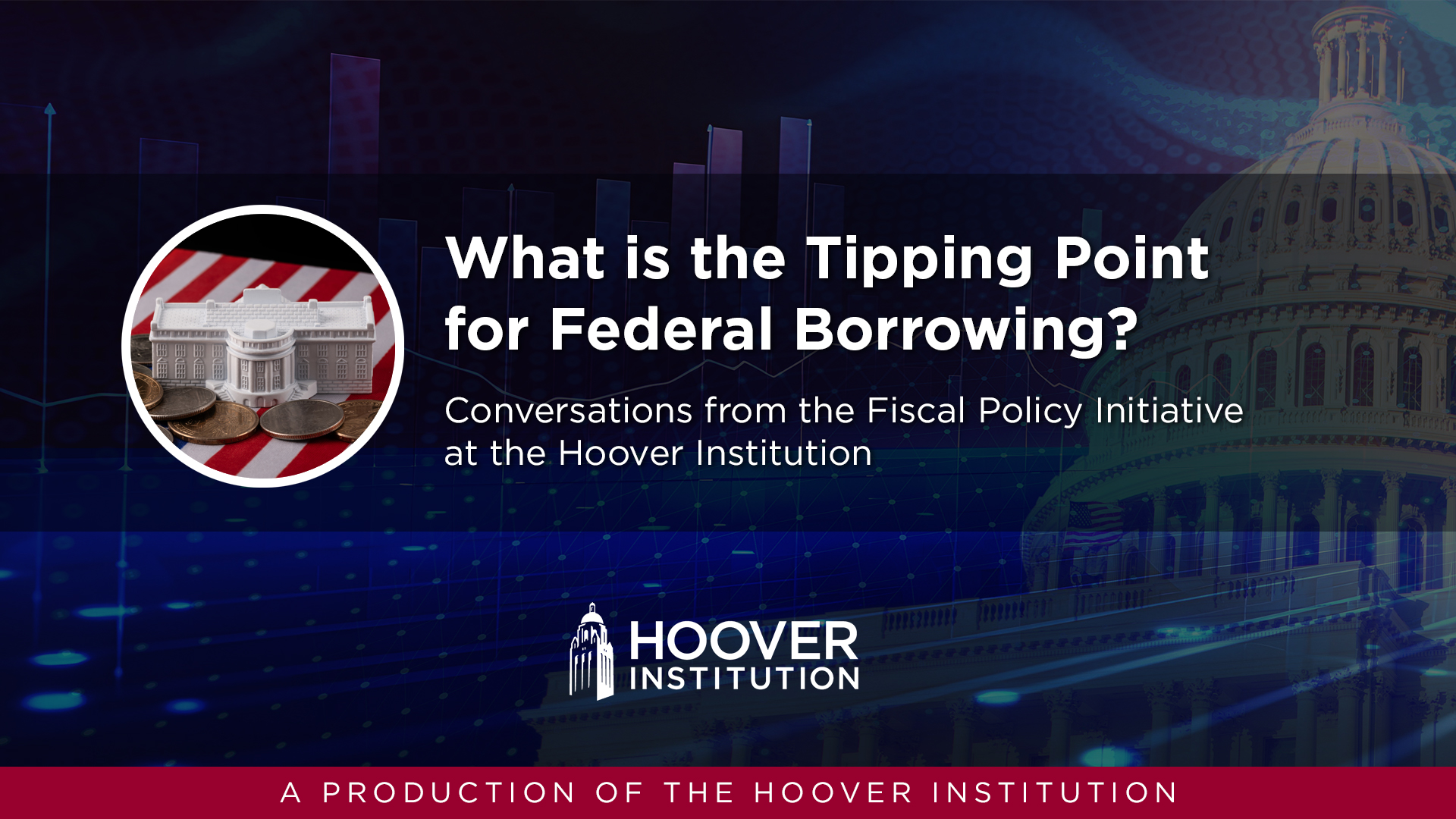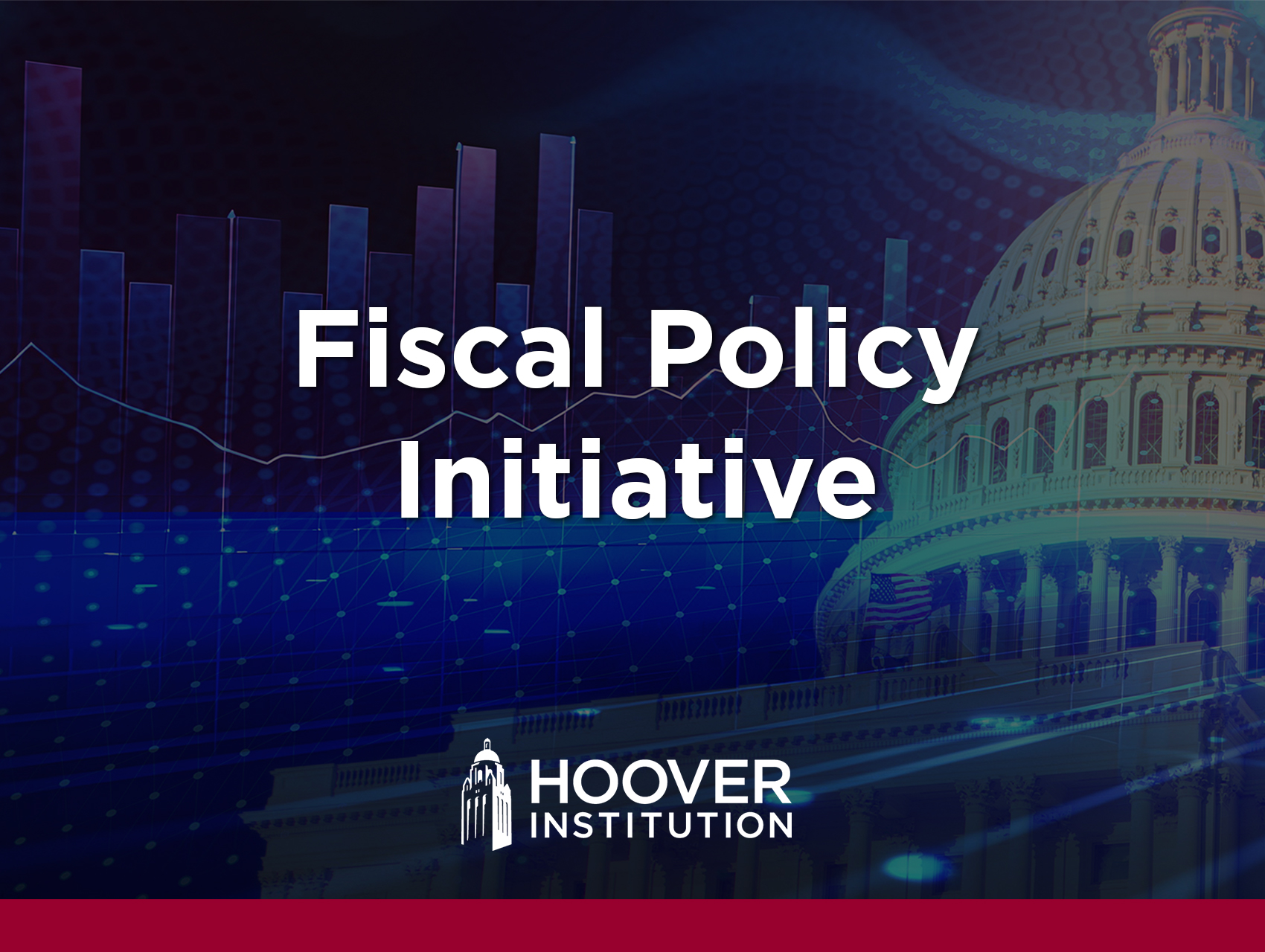- Answering Challenges to Advanced Economies
America is approaching dangerous fiscal tipping points where debt grows faster than our ability to service it, potentially triggering market panic, banking crises, and a deep recession. While some experts believe strong economic growth could help address the debt crisis, they acknowledge that no realistic growth rate can solve the problem alone because both revenue and spending programs increase with economic growth. The position of the United States as the international financial system’s "safe asset provider" makes its unprecedented debt and deficit levels particularly concerning, as no previous safe asset provider in history has operated with such fiscal imbalances.
Learn more about the launch of the Hoover Institution’s Fiscal Policy Initiative.
WATCH THE VIDEO
>> Marc Goldwein: I worry about two different tipping points when it comes to our debt. The first tipping point happens when the interest rate starts to rise above the economic growth rate, because at that point our existing debt is growing faster than our ability to service it. But the second tipping point comes when that starts to spin out of control, when higher interest means higher debt, means higher interest rates means higher debt means lower growth, and ultimately puts us on a debt spiral.
At some point on that debt spiral, the markets are going to look forward and they are going to say there is no plausible way that Congress can correct this. And that could lead to a panic, cause a banking crisis, and ultimately put us deep into a recession that will be very hard to dig out of.
>> Michael Boskin: I'm less convinced that we'll find a tipping point, but it's certainly possible that the further we go along this route of rising debt GDP ratios, the more likely it is there'll be some serious consequence that's discontinuous, whether that's explicit financial crisis that causes problems or just a sharper slowdown in growth remains to be seen.
But I think it's fair to say whether there's an explicit tipping point we can recognize in advance or not, that the further down this road we go, the higher the debt GDP ratio, the fewer degrees of freedom, the less our ability to respond, the more difficult it will be to respond.
So it'd be wise to take out some insurance and start getting the debt GDP ratio under control.
>> Paul Schmelzing: In fact, I think we are very close to a very concerning and worrying tipping point because the US Has a unique position in the international financial system. It is the safe asset provider, the anchor, if you will, of the entire international financial system.
Right now. It is one thing if a member of the international financial system runs high debt levels, but never before has the safe asset provider run debt to GDP levels. As far as we can reconstruct, starting with the Republic of Venice, the safe asset provider of the 14th century.
Never before has the Safe Asset Provider run debt and deficit levels. And as the US does today.
>> Michael Boskin: Well, the best thing we can do to reduce the pressure of federal borrowing and debt on the economy is to grow more rapidly. And obviously more federal borrowing and more debt will make that harder to do.
So constraining our borrowing will help in some regards, but growth will depend heavily on future productivity enhancements from technology and other ways, our human capital investments doing a better job in our schools, particularly for the the parts of our population are not getting well educated now and things of that sort.
Less regulation targeted on the things we really need to regulate and giving some flexibility in how people and households and businesses react to it while achieving the regulatory goals. All those would help a lot.
>> Marc Goldwein: We need strong economic growth to get our debt under control, but there is no realistic amount of growth that can solve it on its own.
Even if we were to grow, say, 3% a year, which is massively higher, it's more than 50% higher than we're expected to, we would still be in debt. Part of the reason for that is it's not only revenue that grows when the economy does. It's also a lot of our spending programs, whether for Social Security, for Medicare, or even interest on the debt.
Featuring:
- Marc Goldwein, Committee for a Responsible Federal Budget
- Michael Boskin, Hoover Institution
- Paul Schmelzing, Boston College


















